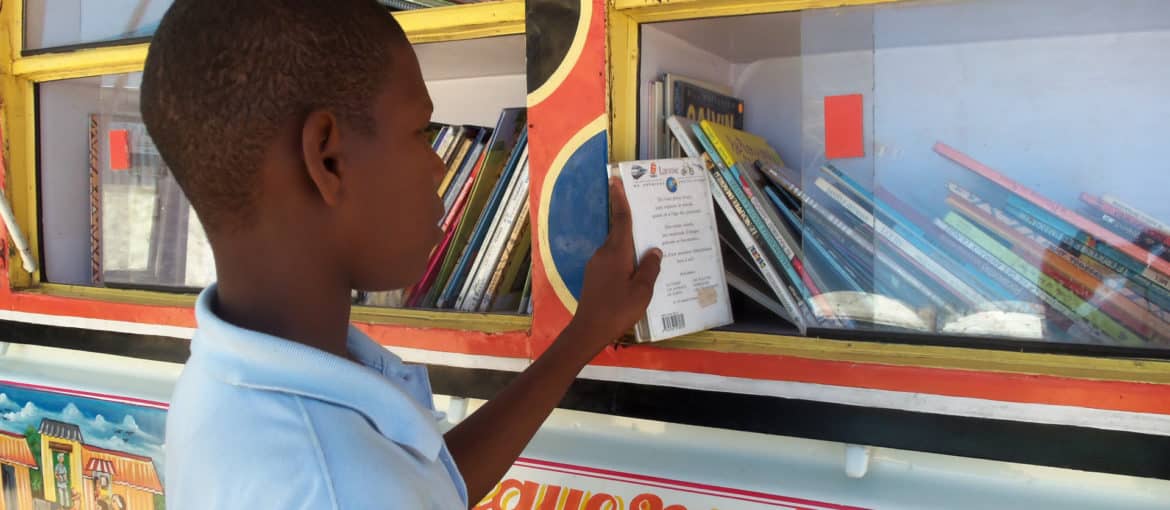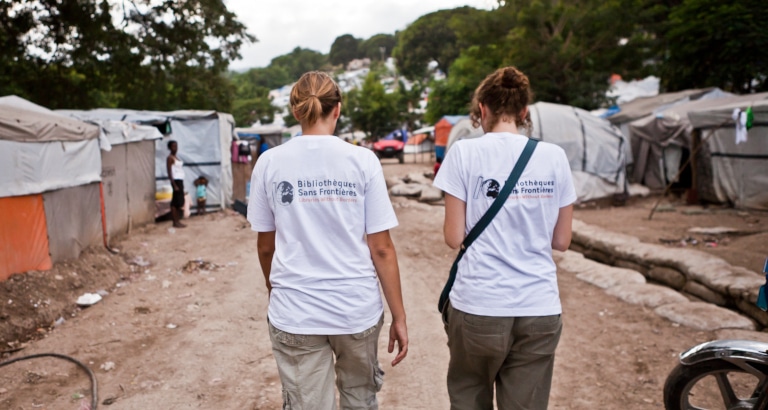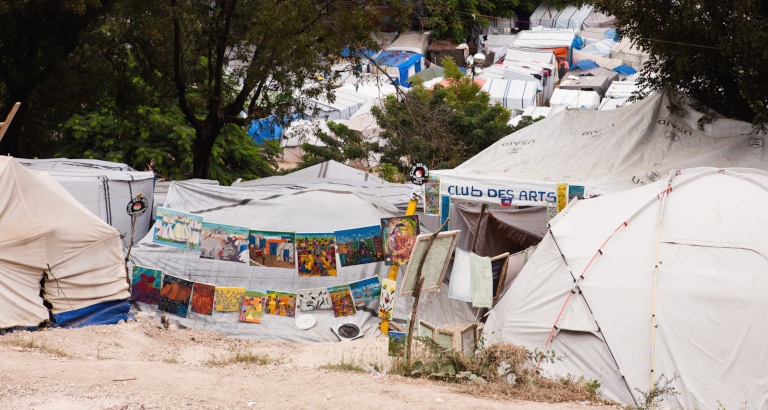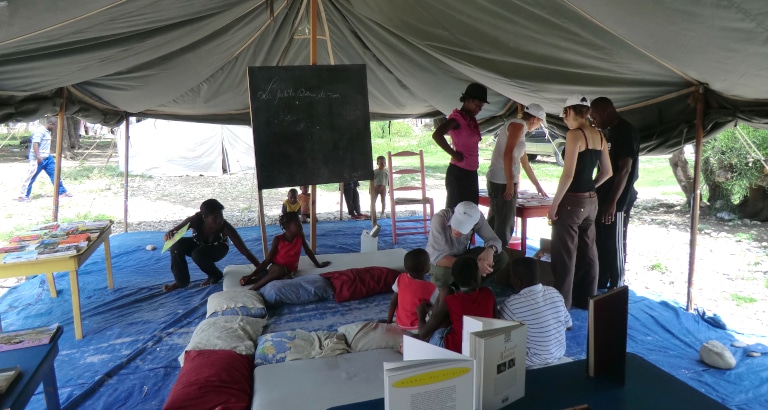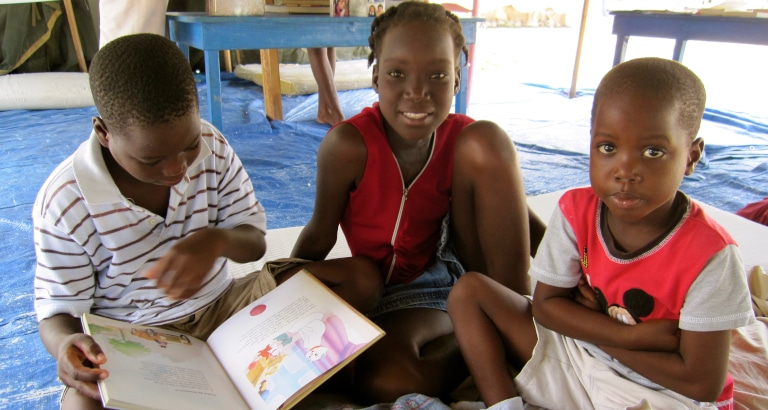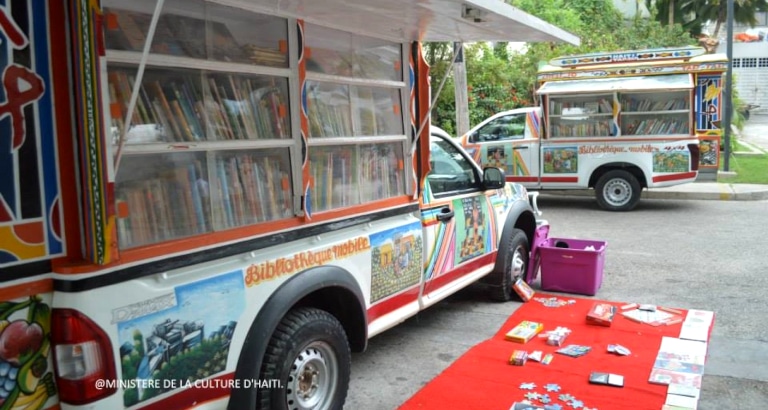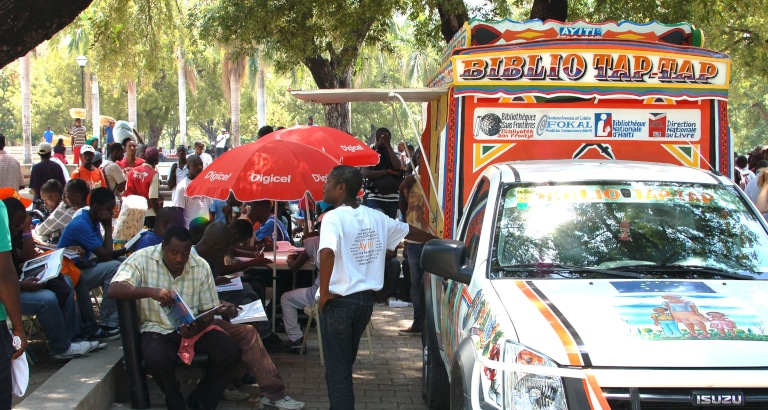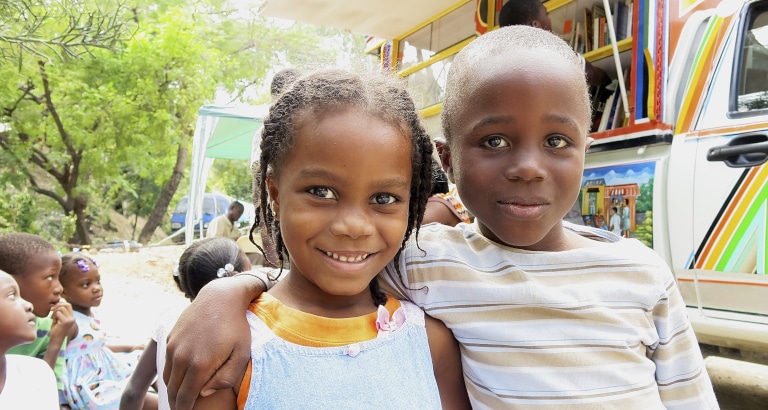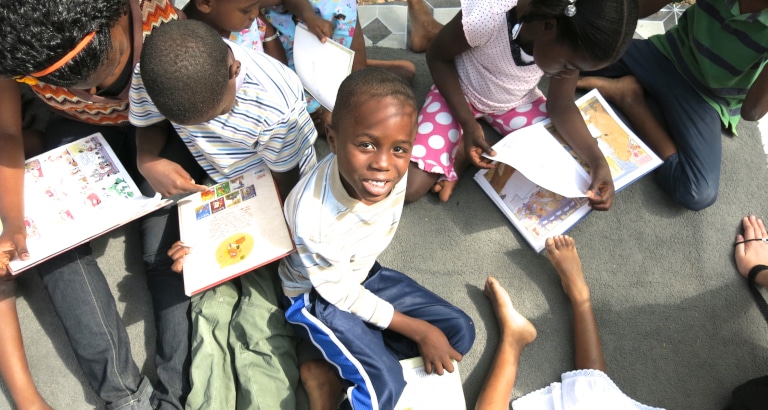While rumors inevitably spread throughout the camps due to the lack of reliable collunication channels, BSF set up information panels where the residents could access accurate and useful updtaes like the bus schedules, water access points, psychologist consultation times, legal aid services and community events.
At the same time, BSF enriched the book collections of the Haitian State University’s faculties and supported the development of training centers, the School of Magistrates, the Port-au-Pribce Tribunal, and the central women’s prison by providing books.
In 2012, BSF and the Haitian Society for the Blind created an audio library for the visiually impaired and illiterate people, highlighting Haitian literary heritage. With the help from the European Union and from other local partenrs—including the National Library of Haiti, FOKAL, and the National Directorate of Books—three mobile libraries, the ‘BiblioTapTap’, were launched. These traveled through Port-au-Prince’s most affected neighborhoods, as well as rural and remote villages.
“The BiblioTapTap has introduced the ‘outreach’ approach, which remains central to BSF’s expertise today: instead of waiting for the people to come to us, we went directly to them. In the village squares, we organized cultural and recreational activities alongside local artists. Our ‘beyind the walls’ tools quickly became valuable resources for the population.“ Emilie Deschamps

